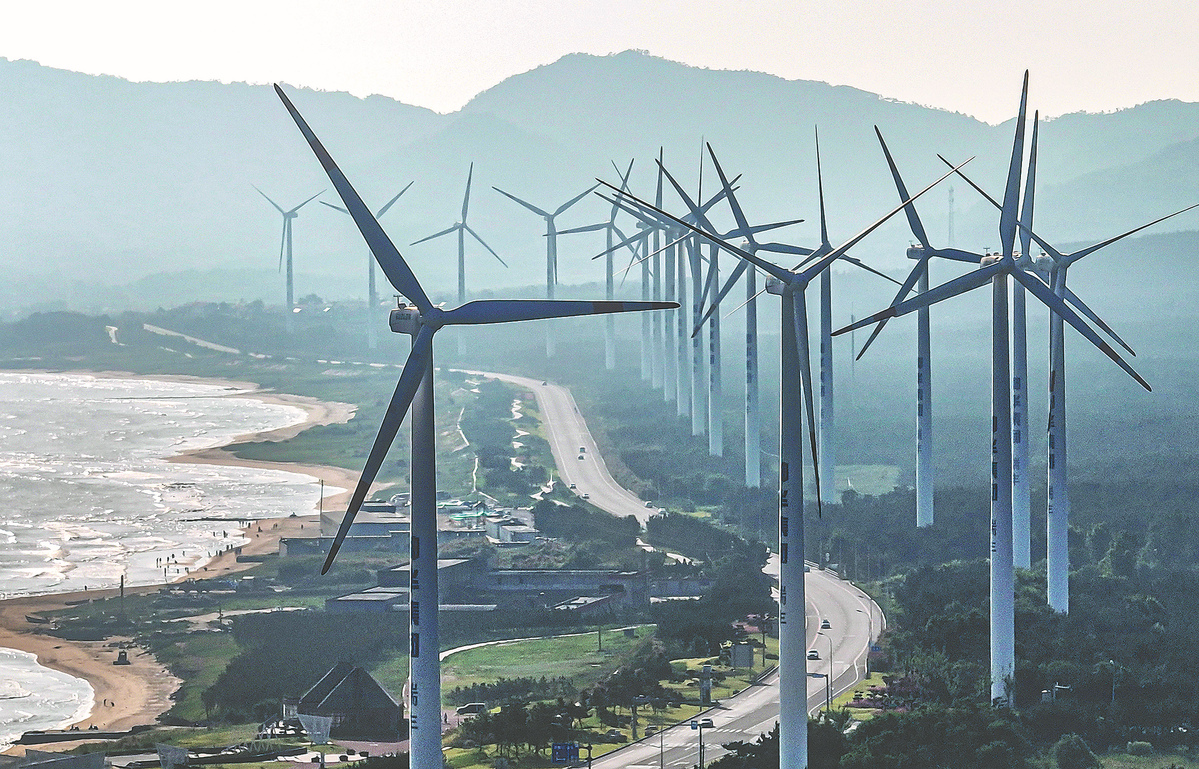Countries must converge on climate actions
By Wang Huiru | CHINA DAILY | Updated: 2023-12-14 07:13

The COP28 ended on Dec 12 with major divisions still remaining among different countries.
As a pioneer in global climate change governance, the European Union has two priorities: to scale up renewable energy and phase out fossil fuels; and call for a phased ban on coal-fired thermal power plants that have not adopted carbon dioxide emission reduction measures, as well as stop to investment in new thermal power plants. The EU has also pledged substantial financial assistance to the proposed Loss and Damage Fund, which is aimed at helping vulnerable countries mitigate and adapt to climate change.
The United States, Japan, Australia and Canada are among the developed economies that have taken a different climate stance than the EU. In a joint statement with China in November 2023, the US supported the tripling of global renewable energy capacity by 2030 and working together to accelerate its domestic use. But with the Republicans in control of both the House of Representatives and Senate, it is difficult for the US to take more global climate actions.
As for international climate finance, the US agreed to an agreement framework for a new fund for climate change-affected countries, provided that rich countries have no responsibility to pay for the loss and damage. As a matter of fact, the US administration has long faced opposition from the Congress on climate funding.
Most developed countries including Japan, Australia and Canada expressed support for commitments on renewable energy and energy efficiency. The Group of 77, representing developing countries, says the developed countries, which are historically responsible for global warming, should assume greater responsibility for reducing emissions, and demanded that the developed countries provide financial and technological assistance to developing countries to fight climate change.
For many developing countries that suffer from climate change, it's fair for them to call for the proposed Loss and Damage Fund to be available to all developing countries, not just small island countries and least-developed countries, and ensure that measures to combat climate change do not evolve into green trade barriers.
In the meantime, China announced its Action Program for Methane Emission Control in November, which sets clear targets for controlling methane emissions during the 14th and 15th Five-Year Plan (2021-25 and 2026-30) periods. At the conference, China continued to fight for all countries' right to speak on climate finance, asking developed countries to fulfill their commitments and contribute more funds to help developing countries mitigate and adapt to climate change.
Domestically, China has been investing heavily in renewable energy and is on track to exceed its target of doubling its wind and solar power generation capacity five years ahead of schedule, which would greatly ease the pressure of global warming.
As the world's second-largest economy, China has been facing global pressure to contribute to the proposed Loss and Damage Fund. But as a developing country whose per capita emissions is still low, China should not be pressured to contribute to the fund. Instead, China can channel its investment and technological cooperation under the Belt and Road Initiative framework into the field of climate resilience to help climate-vulnerable countries deal with the impacts of climate change.
China is an integral part of the multilateral climate change mitigation process, engages in South-South cooperation on climate change, and promotes the construction of a fair, reasonable and win-win global climate governance system.
Also, China has introduced and implemented a number of laws on climate response and action, demonstrating its determination to peak its carbon dioxide emissions before 2030 and achieving carbon neutrality before 2060. And by the end of September 2023, China's total installed capacity of wind and solar power reached 921 million kilowatts, and the installed capacity of renewable energy exceeded 1.38 billion kW, accounting for about 49.6 percent of the total installed capacity.
More important, it is the developed countries that should bear the responsibility and corresponding costs of mitigating climate change, deliver on the $100 billion commitment they have made so as to help developing countries to fight climate change, and make clear the road map for doubling the adaptation funding.
Therefore, all the parties to the UNFCCC should work together to strengthen the global fight against climate change, not take protectionist and unilateral measures, promote mutual political trust and create a positive atmosphere for global cooperation.
The author is an assistant professor at the Institute of International Law of Chinese Academy of Social Sciences. The views don't necessarily represent those of China Daily.
If you have a specific expertise, or would like to share your thought about our stories, then send us your writings at opinion@chinadaily.com.cn, and comment@chinadaily.com.cn.
























